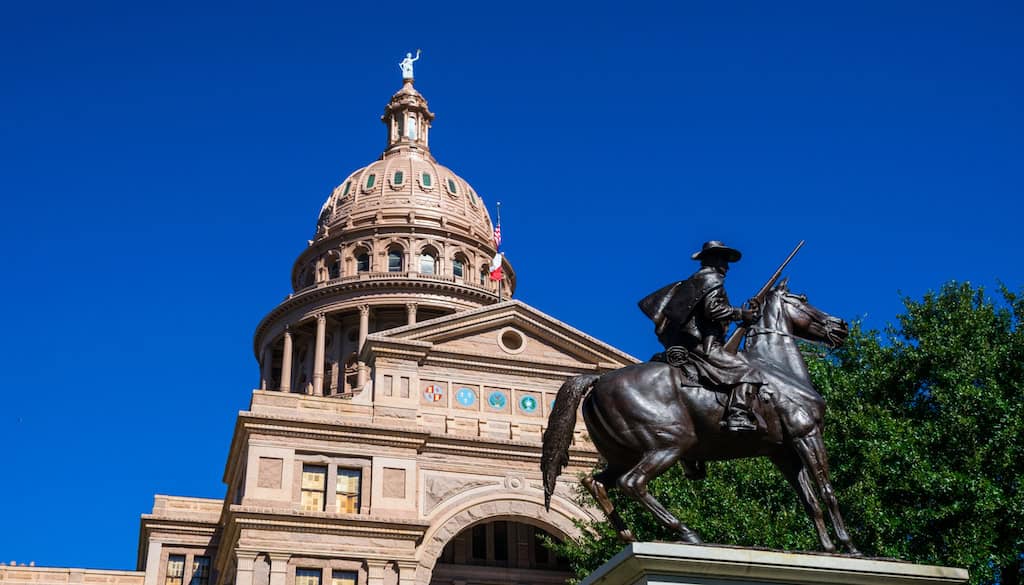A new Texas bill would prohibit undocumented students and nationals of China, Iran, North Korea and Russia from enrolling in the state’s public institutions.
In House Bill 4736, far-right state representative Tony Tinderholt proposed that HEIs be prohibited from admitting students from China, Russia, North Korea, and Iran, as well as any undocumented students.
Open Doors data from 2022 shows that of the 70,223 international students in the state – who spend some $1.7 billion – 15.8% came from China in the 2021/22 academic year.
Across the whole of the US, there were 9,295 students from Iran. There were around 4,800 Russian students enrolled across US colleges and universities in 2020/21. It is unclear whether any North Korean students study in the country at all. Reports suggest that China is the main study destination for the small number of individuals leaving the authoritarian country.
The bill comes on the heels of two other Texas bills aimed at preventing nationals of the four countries from buying property in Texas. Proponents of the bills include governor Ted Abbott, and conservative legislators argue that they are part of a national security strategy to curtail foreign interference in government.
While stakeholders close to the issue indicate that the bill is highly unlikely to pass, it has many concerned that the flames of anti-Asian and anti-immigrant sentiments have once again been stoked.
“Banning students from any country, or those who have lived in the state for years but are undocumented is a travesty,” Lin Larson, director of student recruitment at The University of Texas at Arlington, told The PIE News.
“This hurts Texas students and is a slap to our state’s diversity”
“While the bill is most likely not to pass,” she continued, “the mere idea that students, many already faced with hardships and struggles, are targeted restricts the ability to share ideas, knowledge and experiences. This hurts Texas students and is a slap to our state’s diversity.”
Last month, Abbot’s office issued a memo to state agency and public university leaders that diversity, equity, and inclusion initiatives are illegal in hiring. As a result, Texas A&M, Texas State, and the University of Houston banned DEI statements in their job applications.
After many Republican lawmakers supported Trump’s claims that China deliberately spread coronavirus around the world, a rash of hate crimes against Asians ensued in the US. In major cities, the percentage of anti-Asian hate crimes grew over 150%.
Advocacy groups, such as Texas AAPI and The National Immigration Law Centre, are concerned that the three latest “racist and xenophobic” bills in Texas may ignite a new slew of violence against citizens of the four countries named in the bills.
This is not the first call for international students from China to be banned from Texas schools. Last year, a candidate for Congress proposed a ban on all Chinese students from Texas schools.
Detractors have expressed alarm that the movement to ban certain foreign nationals, in particular, Chinese immigrants, harkens the Chinese Exclusion Act of 1882, in which a 10-year ban was placed on Chinese labourers to work in the US. The Act hampered Chinese immigration and rights for over half a decade.
The bills come amid much discussion on both sides of the aisle about accusations of Chinese spying, from the balloon that was shot down over the Carolinas this winter, to the TikTok social media platform. While TikTok is currently banned on government devices, the Biden administration has threatened a full ban on the app and is expected to make a ruling imminently.
At University of Texas Austin, alumni William Zhang co-created Korra, an app that serves as a platform for university students in Texas to discuss issues of race and discrimination they have experienced. The app is also being used by students at Texas A&M University, Rice University, and the University of Houston.
Last month, the University of Houston held its fifth annual Global Communication Summit and the theme was combatting anti-Asian racism in communication.
Yali Zou, professor for global leadership studies at UH was one of the organisers and she said she hoped the summit would illuminate some of the daily issues experienced by Asians on campus and in the community.
“We hope to demonstrate that issues of racism, prejudice, violence, and microaggressions against Asians/Asian Americans are important issues for the entire Houston community,” she said.












